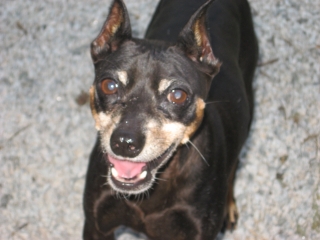Fear Plus Punishment Equals Disaster!

On a recent visit to a new client’s home, I was amazed with the information that she shared with me, regarding her previous dog training experiences with her small dog. She sat and explained that she had opted to take her small dog to a local trainers play group in hopes to address her dog's reactivity around other dogs and strangers. The trainer knew her concerns and had no problem enrolling her into the group of small dogs.
My new client had been going to this playgroup for about a year and noticed that instead of her dog getting better around other dogs, she was getting worse. After asking my client a myriad of questions and investigating how the group was designed and operated, I uprooted some very troublesome information. It appeared that the trainer did not allow dogs to bark while they were playing so the trainer took the liberty to use a spray bottle filled with water to squirt them in the face if they barked while they played! If that wasn't enough or didn't work, she then took the opportunity to use an air horn to stop the barking!! The trainer also told my new client that she should incorporate the spray bottle and air horn technique at home. She was told to use it when company came to the door, if the dog chose to bark at them. My client complained that her small dog was becoming more and more reactive around other dogs, company and strangers. When the doorbell rang, the dog would become violently reactive and then run and hide under the couch.
I think we all have a good picture of *why* her dog's behavior was becoming worse instead of better. Dogs form associations and this dog had associated the fact that punishment occurs in the presence of other dogs and strangers. Her dog was becoming more and more fearful that punishment would occur if other dogs or strangers came too close.
Interestingly enough, my client told me that she had a hunch that damage was being done but she felt that the trainer knew best. The moral to the story; all trainers are not created equal. Some dog trainers incorporate unnecessary measures to try to eliminate unwanted behavior/s. It’s important for dog owners to observe a dog training session in progress, without their dog, before they enroll into any trainer’s classes or sessions. If it doesn’t feel right, if the dogs don’t look happy, if it gives you an uneasy feeling, quietly slip out and be thankful that you didn't subject your dog to poor training practices.




